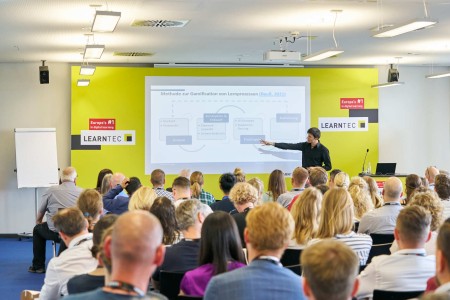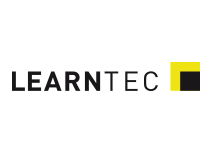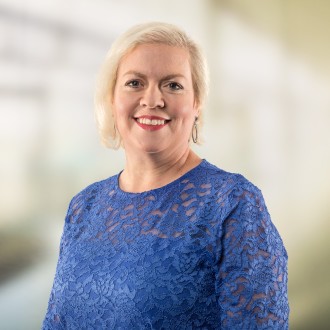LEARNTEC Convention 2024 focuses on AI, XR and other top trends in digital education

From 4 to 6 June 2024, the LEARNTEC convention will once again showcase the latest trends in digital education. Around 100 speakers from business and science will pass on their expertise to participants in around 70 practical lecture and workshop slots. Artificial intelligence will once again be the dominant topic at the convention in 2024, along with virtual and augmented realities (XR). Other key topics include data literacy, trust culture, ESG and performance management.
The convention is aimed at professionals from the education sector, companies, academics and interested parties who want to help shape digital education and offers them the opportunity to exchange ideas with like-minded people, make new contacts and learn from high-calibre international experts.
"From the submissions to the Call for Papers, we have once again put together a high-quality convention on the very latest topics in digital education. We are particularly pleased that we are increasingly receiving submissions from European countries and can share their important insights and best practice," say Sünne Eichler and Prof Dr Peter A. Henning from the LEARNTEC Convention Committee. "We cordially invite all convention participants to expand their knowledge, gather new ideas and be inspired."
Exclusive keynotes provide forward-looking impetus
The centrepiece of this year's LEARNTEC convention will once again be the high-calibre keynotes with speakers from science and industry. LEARNTEC starts with a public keynote by Prof Dr Ulrike Lucke, University of Potsdam. She will present the national education platform. The German government expects this central institution to provide a significant boost to the digitalisation of education; as a hub, it is intended to integrate educational platforms and services nationwide, establish common standards and facilitate access to education. In the afternoon of the first day of the congress, Lori Niles-Hofmann, Senior Learning Transformation Strategist from Canada, will speak to the participants. "I will be talking about the future of learning, including the ways in which artificial intelligence can be used to enhance digital learning. This will be far more than using ChatGPT to write courses. Instead, we will look at how AI can be connected to the EdTech ecosystem of organisations to fully understand how people learn and where learning impacts business. Finally, I will be speaking on skills-based organisations and the role that learning and development and AI will have in this new paradigm," she says ahead of LEARNTEC.
The second day of the event will begin with a keynote speech on learning support by Prof. Dr Anja Schmitz and Jan Foelsing: "In times when technological developments are coming thick and fast and learning has become a critical competitive factor, the question of how we can optimally support employees in this context of human-machine collaboration so that they can develop their potential and contribute to the success of the organisation is becoming increasingly urgent. Learning support plays a central role in this. We will shed light on how learning support can be designed to promote self-directed and effective learning using human and digital intelligent learning guides in the interplay of artificial and human intelligence."
This year, the popular panel discussion on Wednesday afternoon will focus on the individual wishes and visions of how the young generation would like to see digital education in the future. The panellists will include Jon Buchmüller, a student at the University of Hohenheim, and young professional Tamara Frankenhäuser from the LEARNTEC team as well as trainees from trade and industry.
Creativity meets the future: next-generation e-learning approaches
With a holistic approach, the team led by Charlotte Axelsson, Head of the Teaching Development Unit at Zurich University of the Arts, is designing "digital learning spaces that can be experienced in a sensual and tender way". Using the examples of a continuing education programme and other continuing education formats in the Encounter series, Charlotte Axelsson will explain the associated pedagogical concepts, methods and strategies on Thursday morning. "Digital skills are essential for shaping future education in a world with artificial intelligence."
Prof Dr Eric Eller, Professor of Business and Media Psychology at Ingolstadt University of Applied Sciences, will focus on the culture of trust in his keynote speech. He argues that trust is "a confident decision for vulnerability and thus also a central prerequisite for learning": "Whether people can trust each other within an organisation is no coincidence. Rather, the prerequisites for the development of trust are known and can be systematically established. Together, we will delve into the psychology of trust and clarify how a culture of trust can develop in organisations."


